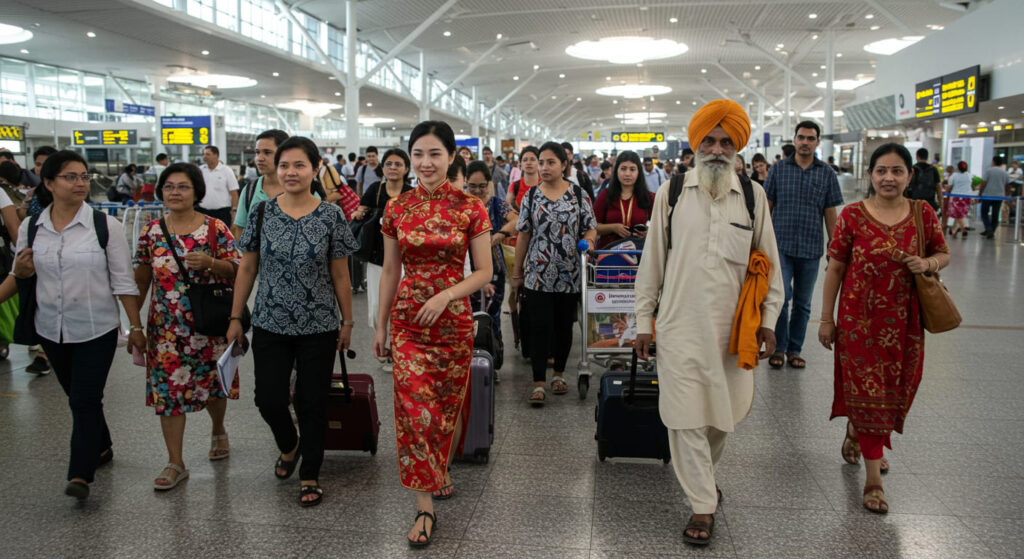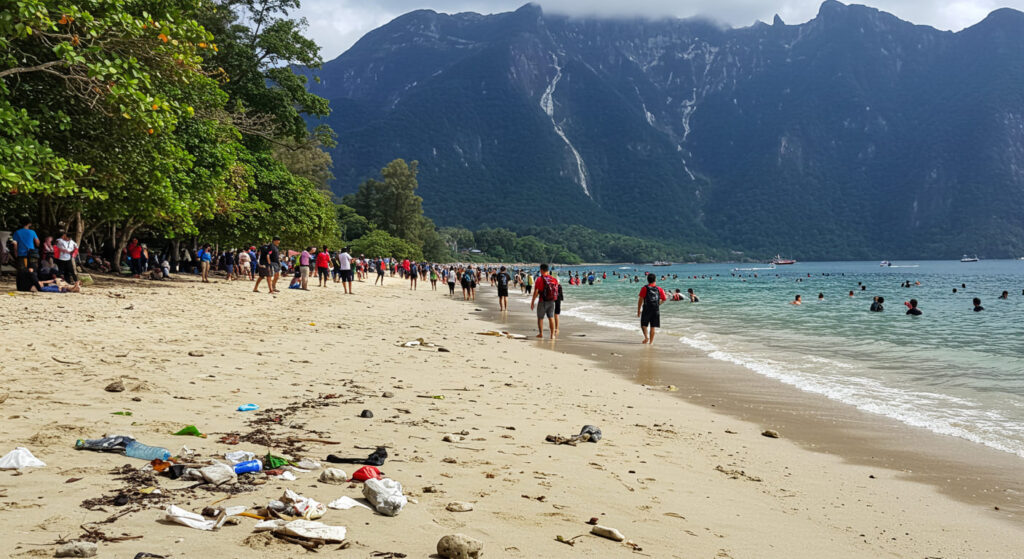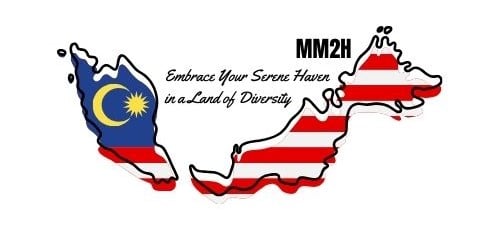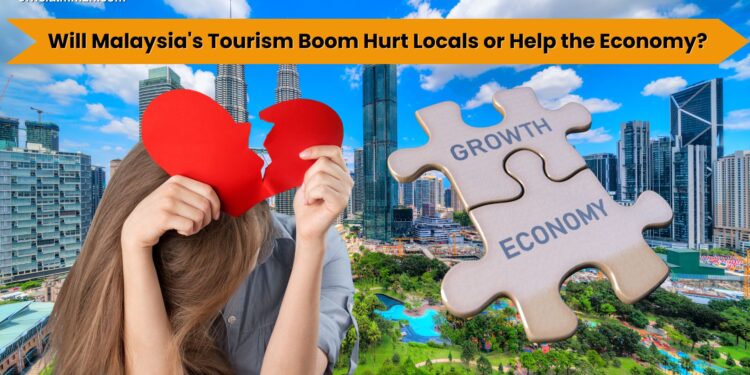Surge in Malaysia Tourism: Economic Boost or Local Burden?
Malaysia has always been a traveler’s dream destination, offering a mix of cultural diversity, stunning natural beauty, and urban vibrancy. From its bustling cities like Kuala Lumpur to the serene beaches of Langkawi, the country offers something for every type of traveler. However, in recent years, Malaysia’s tourism industry has reached new heights, with a significant boost in arrivals from China and India. While this boom has brought undeniable economic advantages, it has also raised critical questions about its impact on local communities, sustainability, and equitable sharing of benefits.
In this article, we’ll explore how Malaysia’s tourism boom has reshaped the country, its economic significance, the sustainability efforts in place, and the challenges faced by locals.
The Surge in Malaysia Tourism from China and India
A key driver behind Malaysia’s recent tourism success has been its strategic visa policies. Between December 2023 and December 2024, Malaysia introduced visa exemptions for Chinese and Indian nationals, allowing them to stay for up to 30 days without the need for a visa. This bold move has resulted in a dramatic increase in tourist arrivals, especially from these two nations, which are among the world’s largest sources of outbound travelers.
The numbers are astounding. By 2024, Malaysia’s tourism sector is projected to contribute MYR 198.7 billion to the national economy, surpassing pre-pandemic levels by 1.6%. This figure represents 10.5% of the country’s GDP, highlighting the industry’s pivotal role in Malaysia’s economic recovery and growth.

High-spending tourists from China and India have had a particularly notable impact. From five-star hotel stays to shopping sprees in luxury malls, their spending supports various sectors, including hospitality, retail, and transportation. This influx of visitors has not only rejuvenated Malaysia’s tourism economy but also provided a significant boost to local businesses, particularly those offering unique cultural experiences, traditional crafts, and culinary delights.
Economic Contributions: A Pillar of Strength
Tourism has long been a cornerstone of Malaysia’s economy, but its importance has only grown in recent years. The ripple effects of a thriving tourism industry are far-reaching, creating jobs and opportunities across multiple sectors.
Local businesses are among the biggest beneficiaries. Travelers are increasingly drawn to authentic experiences, from exploring heritage sites to purchasing handmade crafts and sampling local delicacies. Regions such as Penang and Malacca, known for their rich history and culture, have seen a surge in visitors eager to explore their unique charm.
Additionally, the government has invested heavily in infrastructure to support tourism growth. Airports have been modernized, highways improved, and heritage sites restored. These developments not only enhance the travel experience but also benefit locals by improving connectivity and preserving Malaysia’s cultural legacy.
Sustainability: Protecting Malaysia’s Natural Beauty
With growth comes responsibility. Recognizing the potential risks of unchecked tourism, Malaysia is increasingly focusing on sustainability. The government and private sector are working together to promote eco-friendly practices and community-based tourism (CBT) initiatives.
Sustainability efforts are particularly evident in popular destinations like Langkawi and Mount Kinabalu. Langkawi has embraced eco-tourism, with initiatives to reduce plastic waste, protect marine ecosystems, and encourage responsible tourism practices. Similarly, Mount Kinabalu, a UNESCO World Heritage Site, has implemented stricter visitor limits to protect its fragile environment and ensure its long-term viability.
Community-based tourism is another key strategy. These programs engage local communities in tourism activities, ensuring that they benefit directly from the industry. By empowering locals to share their culture and traditions with visitors, CBT initiatives help preserve Malaysia’s unique identity while providing sustainable income for residents.
Challenges for Local Communities
While the economic benefits of Malaysia’s tourism boom are undeniable, the rapid growth has also created significant challenges for local communities.
One major issue is the rising cost of living in popular tourist areas. Increased demand for accommodation and services has driven up prices, making it harder for locals to afford housing and everyday essentials. For example, neighborhoods in Langkawi and Penang, once affordable for residents, are now catering primarily to tourists, leaving locals struggling to keep up.
Gentrification is another concern. As developers focus on creating luxury accommodations and attractions for tourists, traditional neighborhoods are transformed, often forcing local residents to relocate. This not only disrupts their way of life but also erodes the cultural fabric that makes these areas unique.
Environmental degradation is also a pressing issue. Over-tourism in hotspots like Langkawi and Mount Kinabalu has led to pollution, habitat destruction, and overuse of natural resources. Without effective regulations and enforcement, these problems could escalate, threatening the very attractions that draw visitors in the first place.

Uneven Distribution of Benefits
Another challenge lies in the unequal distribution of tourism’s economic gains. While the industry generates significant revenue, much of it is captured by large multinational corporations, including hotel chains and tour operators. This leaves smaller local businesses struggling to compete and claim their fair share.
Seasonal tourism further exacerbates this inequality. Workers in the hospitality and retail sectors often face income instability, with their earnings fluctuating depending on tourist arrivals.
In some cases, tourism development has even displaced entire communities. A notable example is the Bajau Laut, or “Sea Gypsies,” whose traditional homes were destroyed to make way for marine parks and tourism projects. Such instances highlight the need for more inclusive and community-driven approaches to tourism development.
The Debate: High-End Tourism vs. Inclusivity
Malaysia has made significant efforts to position itself as a high-end tourism destination, targeting affluent travelers who spend more per visit. This strategy aligns with the country’s vision of becoming a premium travel destination, attracting luxury-seeking visitors.
While this approach generates substantial revenue, it has its drawbacks. Critics argue that a focus on high-end tourism often sidelines the needs of local communities and prioritizes luxury developments over inclusivity. Large-scale resorts and exclusive experiences may overshadow smaller, community-based initiatives, reducing opportunities for local businesses to thrive.
Advocates for sustainable tourism suggest that Malaysia should adopt a more balanced approach. By combining premium offerings with support for community-driven projects and fair profit-sharing, the country can create a more inclusive tourism model. Additionally, prioritizing environmental conservation is essential to ensure that Malaysia’s natural and cultural treasures remain intact for future generations.
The Path Forward
Malaysia’s tourism boom is both an economic triumph and a complex challenge. While the industry’s rapid growth has brought significant benefits, it has also exposed vulnerabilities that need to be addressed.
The future of Malaysian tourism lies in finding a delicate balance. Strategic policies must focus on fostering economic growth while prioritizing sustainability, inclusivity, and equitable distribution of benefits. Investments in eco-tourism, community-based initiatives, and environmental conservation will be key to ensuring that tourism remains a positive force for the nation.
Conclusion: Can Malaysia Sustain the Boom?
As Malaysia continues to embrace its tourism potential, the challenge remains: Can the country sustain its economic gains while protecting its people, culture, and environment?
The answer to this question will define the future of Malaysia’s tourism industry. By adopting sustainable and inclusive practices, Malaysia can not only enhance its global reputation but also ensure that tourism benefits everyone—locals and visitors alike.




